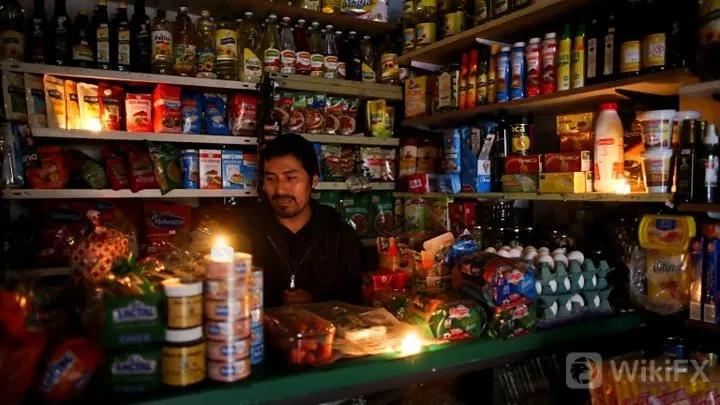简体中文
繁體中文
English
Pусский
日本語
ภาษาไทย
Tiếng Việt
Bahasa Indonesia
Español
हिन्दी
Filippiiniläinen
Français
Deutsch
Português
Türkçe
한국어
العربية
South America power cut: Argentina investigates 'unprecedented' outage
Abstract:Media playback is unsupported on your device Media captionBusinesses in Buenos Aires were affected b

Media playback is unsupported on your device
Media captionBusinesses in Buenos Aires were affected by the nationwide power cut
Argentina is investigating what caused a massive power cut that hit nearly 50 million people.
President Mauricio Macri called the outage “unprecedented”, promising a thorough inquiry.
Almost all of Argentina, neighbouring Uruguay and some areas of Paraguay woke up to darkness on Sunday.
The disruption hit public transport while hospitals were forced to run on generators. Power had largely been restored by the end of the day.
Argentine officials said it began with a failure in the country's “interconnection system” but that the exact cause was unknown.
Energy Minister Gustavo Lopetegui said it was unlikely that a cyber-attack was responsible, and that it would take 10-15 days for the results of the investigation to be published.
Despite the massive outage he said the country's electrical network was “very robust”.
How bad was it?
The power cut hit almost all of Argentina's 44 million population, with just one province not connected to the main system spared. Uruguay's 3.4 million inhabitants were also affected. The two countries share a power grid.
Local elections still took place as scheduled in Argentina, with local media showing voters using their mobile phones for torches.
Image copyrightReutersImage caption
The blackout came during provincial elections in Argentina
Image copyrightReutersImage caption
Transport was halted
Image copyrightAFPImage caption
People, like this woman in Montevideo, Uruguay, were forced to use candles
Restaurants that expected to be full for Father's Day instead remained closed.
Residents posted pictures of dark towns and cities and long lines of cars queuing at petrol stations.
“Everything came to a halt. Elevators, water pumps, everything. We were left adrift,” Juan Borges, who lives in Buenos Aires, told the BBC.
“There are some elderly people on the eighth floor but nothing happened, because the power cut was short. If it had gone on for longer it would have been a whole different story.” he said.
A similar blackout hit Brazil in 2009, with a massive blackout leaving about 60 million without power.
Disclaimer:
The views in this article only represent the author's personal views, and do not constitute investment advice on this platform. This platform does not guarantee the accuracy, completeness and timeliness of the information in the article, and will not be liable for any loss caused by the use of or reliance on the information in the article.
WikiFX Broker
Latest News
TradingView Brings Live Market Charts to Telegram Users with New Mini App
Trump tariffs: How will India navigate a world on the brink of a trade war?
Interactive Brokers Launches Forecast Contracts in Canada for Market Predictions
Authorities Alert: MAS Impersonation Scam Hits Singapore
Stocks fall again as Trump tariff jitters continue
INFINOX Partners with Acelerador Racing for Porsche Cup Brazil 2025
Regulatory Failures Lead to $150,000 Fine for Thurston Springer
April Forex Trends: EUR/USD, GBP/USD, USD/JPY, AUD/USD, USD/CAD Insights
March Oil Production Declines: How Is the Market Reacting?
Georgia Man Charged in Danbury Kidnapping and Crypto Extortion Plot
Currency Calculator







